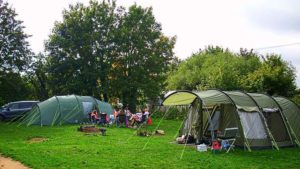Reliable RV accessories and RV camping advices? A mix of freedom and adventure, recreational vehicle life is amazing. But there are many aspects that can be improved, to make your RV life even better. You need a clothes hamper! Smaller or even collapsible hampers work great. We’ve found collapsible hampers work best for us because we have limited space in our rigs, but if you have a larger, more spacious interior, you can certainly use a traditional hamper. Hangars waste a lot of vertical space around the hook. These hangar travel trailer accessories are much ‘shorter’ and don’t make your shirts drag the bottom of a short closet. Find more details on rvdealerdieselmotorhomes.com.
Campers have few spots for knickknacks and decorations, but RVs can also be notoriously sterile looking. You’re going to want to take some things to make your little home cozy and inviting. For example, use rugs to add color and soften up your space. Plants can also add life and vibrancy to your home, and help purify the air. I had two hanging plants in our minuscule camper, and they made the RV feel cozy. We hated not having any art on the walls, so we ended up decoupaging small printouts of our favorite pieces right on the walls. You can also use 3M Command Strips to hang up prints or photos or invest in a digital picture frame. Remember, though, the shaking that a camper goes through while traveling can be intense, especially on bad roads. Quakehold is useful for securing things (like artwork and small plants) so they stay put.
There are two different types of levels: Bubble Levels that have an air bubble that floats to the high side, and Ball Levels that have a ball that drops to the low side. Bubble levels are more responsive (the bubble moves more quickly as the RV moves). Ball levels take a few seconds to react. If you use both types, you can get confused because they move in opposite directions.
The ubiquitous tarp, usually blue, is used to cover many things, it seems to be an obvious choice for covering an RV. You can find them everywhere, they’re inexpensive… but they’re a bad idea for motor home and travel trailer owners. First of all, tarps don’t “breathe”. Any moisture that gets under it, or is already on or in your RV can become trapped. The result can often be mildew, mold, and even moss. Secondly, although they can feel slippery – especially when wet – tarps have an abrasive surface. When a tarp is up against your RV, and then moved by the wind, it can have a sandpaper effect. Even the smallest movement over the course of months’ of coverage can cause damage. As well, tarps aren’t fitted. When you try and cover an RV with a tarp (or tarps, more likely) you’ll have to deal with a lot of excess material and corners that just won’t want to be reached. All the extra material makes the cover susceptible to the flapping mentioned above.
Looking back on the miles we drove in the first year, neither of us can imagine doing it by ourselves. Unless you don’t have plans to move very often or for long distances at a time, it’s good to share the drive. Whenever I pull up to a campground, the neighbors always stop by and say to Joe “I wish my wife drove.” If you’re not comfortable driving an RV, there are driving classes available. The more you drive, the more confidence you will have. Before you know it, you’ll be thinking to yourself “this is a piece of cake”. You might even start looking forward to taking your turn behind the wheel.
Before you start asking where you will get money from, you need to know the cost of being a full-time RVer. There is no specific cost for living in your RV full-time. However, the cost can be roughly around $1000-$3000 a month, but your expenses can make the figures go higher or lower. One major cost is if you will live in private parks or camp for free on public land. You can know your total costs when you make a budget. It is especially the case if you have a family or pets or both. RV security system pick : Reolink Argus Wireless Motorhome Security Camera: While the first two products for RV security are alarm systems, this is a security camera. The good thing is that it is wireless and powered by standard lithium batteries. This means you will not have wires flying all around. Plus, it doesn’t matter if there is a power problem; your RV is still protected. Also, the batteries can last for about 180 days without replacement. That is 6 months of effective HD camera performance for your RV’s protection.
